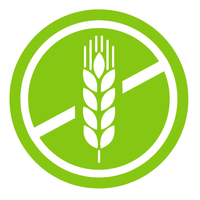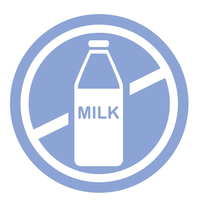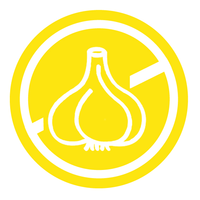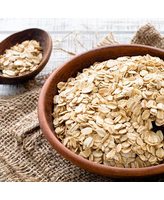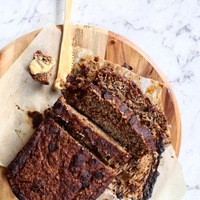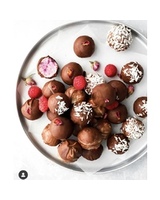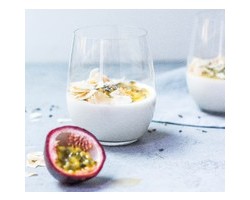Beat those winter blues, naturally!
Author: Elissa Eastgate - BHSC Naturopathy Date Posted:26 June 2017
Winter is definitely upon us, where we want to hibernate from the world, cuddle up in front of a fire, with a nice cup of tea. Getting out of bed is just that little bit harder, with our motivation wearing.
Winter is when you want to binge on comfort foods, foods that give us that extra bit of fat to keep us warmer for the winter; but what does this do to our mood?
Food and mood
Diet plays a major part in how we feel. When you’re low in mood you don’t tend to crave an apple and munch down, we want a tub of ice-cream or chocolate to give us that lift; but what does this do to our mood long term?
Foods such as ice-cream, chocolate and refined foods will give us a short term ‘high’, stimulating our reward centre (Avena et. al 2008). With this high comes the crash and our mood comes crashing with it.
Blood sugar regulation is key in keeping our moods balanced. When this is imbalanced it can contribute to low mood, anxiety and even aggression (Choy et al. 2017, Dipnall et el. 2015).
Sugar, in all it’s forms, contributes to inflammation (Aeberli et al. 2011). Inflammation is a known key factor in mood depletion, contributing to depression and anxiety (Zunszain et al. 2011).
Our gut bacteria also plays an integral role in mood. When there is an imbalance in gut bacteria (bowel flora) we are more prone to depression and anxiety (Westover et al. 2002). Foods that contribute to imbalanced gut bacteria are: sugar (cakes, lollies, sweets, biscuits ect), soft drinks, sports drinks, and a high carbohydrate diet (pasta, bread, rice).
My top ten mood boosting and mood lowering foods:
As mentioned food plays a massive part in how we not only function, but on how we feel.
Foods you want to avoid:
- Alcohol: Red wine in moderation may have some benefits, but when it comes to mood alcohol is a big no no. Alcohol has been shown to reduce the happy hormone serotonin (Lovinger DM, 1993). So whilst you may feel good consuming it, you can feel quite down in the dumps the next day.
- Diet sodas: A study done back in 1995 followed 246,000 people over a 10 year period. It showed that people that consumed diet soft drinks had much higher rates of depression, even over those that drank regular soft drinks or fruit juice. Their theory being that artificial sweeteners may have an impact on not only our mental health, but our overall health in general (Guo et al. 2014).
- Refined sugars and soft drinks: Soft drinks are high in sugar. Sugar works on our body in two different ways. It can dysregulate our blood sugar balance (contributing to that high and crash). It will also create an imbalance in gut bacteria, both of which lead to lowered mood and anxiety.
- Wheat and refined grains: For some, wheat and refined grains can create inflammation in the body. Whilst you may not have any outward signs of inflammation; inflammation can contribute to lowered mood.
- Trans fats: Trans fats, found in foods like margarine and margarine like foods. These foods are usually high in omega 6 which contributes to inflammation and in turn lowered mood .
Foods you want to add or have more of:
- Fresh fruit and vegetables: You want at least 4-6 serves of fresh fruit and vegetables daily (primarily vegetables). Vegetables are full of fibre and feed the good bacteria in our gut. As most of our happy hormones are made in our gut, when there is a good balance in gut bacteria our moods tend to improve (Mu et al. 2016).
- Good fats: Good fats such as avocado, fish, tahini, walnuts and flaxseed oil. These foods help to lower inflammation. Most of our brain is made up of fat and plays an integral role in improving mood. Don’t be scared of fat, it won’t make you fat and it will help improve your mood, yay!
- Herbs: My favourite herbs for improving mood are: Passionflower, St. John’s Wort, Hops and Oats. They are all nourishing for the nervous system and all work on improving mood. Before consuming any of these consult a practitioner as some of these herbs can interact with medication.
- B Vitamins: B vitamins help in energy production, immune function and help to create neurons in the brain that are needed for serotonin production; our happy hormone.
- Green Tea: Green tea contains Theanine, which has been shown to improve mood by enhancing the neurotransmitter GABA. GABA is a beautiful hormone that enhances relaxation and has a calming effect on the body (Abdou et al. 2006). It also helps to reduce inflammation, which is another benefit of green tea.
Walking in gardens, going to the beach; even if it’s cold go out and breathe some fresh air and forget about your troubles, if even for a moment.
Finding activities that you enjoy can also improve mood such as: yoga, tai chi and/or meditation.
Depression and lowered mood is quite common, especially in the winter months. These guidelines may help improve your mood, however if you are not coping please seek help, you don’t have to do this alone.
Elissa Eastgate (BHSC Naturopathy)
References:
Abdou AM, Higashiguchi S, Horie K, Kim M, Hatta H, Yokogoshi H, Relaxation and immunity enhancement effects of y-Aminobutyric acid (GABA) administration in humans, IOS press 2006.
Aeberli I, Gerber PA, Hochuli M, Kohler S, Haile SR, Gouni-Berthold I, Berhold HK, Spinas GA and Berneis K, Low to moderate sugar-sweetened beverage consumption impairs glucose and lipid metabolism and promotes inflammation in healthy young men: a randomized controlled trial, The American Journal of Clinical Nutrition 2011.
Avena NM, Rada P and Hoebel BG, Evidence for sugar addiction: Behaviour and neurochemical effects of intermittent, excessive sugar intake, Journal of Neuroscience and Behavioural Review 2007.
Choi JY, Park MN, Kim CS, Lee YK, Choi EY, Chun WY, Shin DM, Long term consumption of sugar-sweetened beverage during the growth period promotes social aggression in adult mice and proinflammatory responses in the brain, Scientific Reports 2017
Dipnall JF, Pasco JA, Meyer D, Berk M, Williams LJ, Dodd S, Jacka FN, The Association between dietary patterns, diabetes and depression, Journal of Affective Disorders 2014
Guo X, Park Y, Freedman ND, Sinha R, Hollenbeck AR, Blair A, Chen H Sweetened beverages, coffee and tea and depression risk amond older US adults, PLoS One 2014.
Lovinger DM, Serotonin’s role in Alcohol’s effects on the brain, Journal of Alcohol Health & Research World, 1993.
Mu C, Yang Y, Zhu W, Gut Microbiota: The brain Peacekeeper, Journal of Frontiers in Microbiology 2016.
Westover AN, Marangell LB, A cross national relationship between sugar consumption and depression, Journal of Depression and Anxiety, 2002.
Zunszain PA, Hepgul, N and Pariante CM, Inflammation and Depression, Springer Link, 2011.


